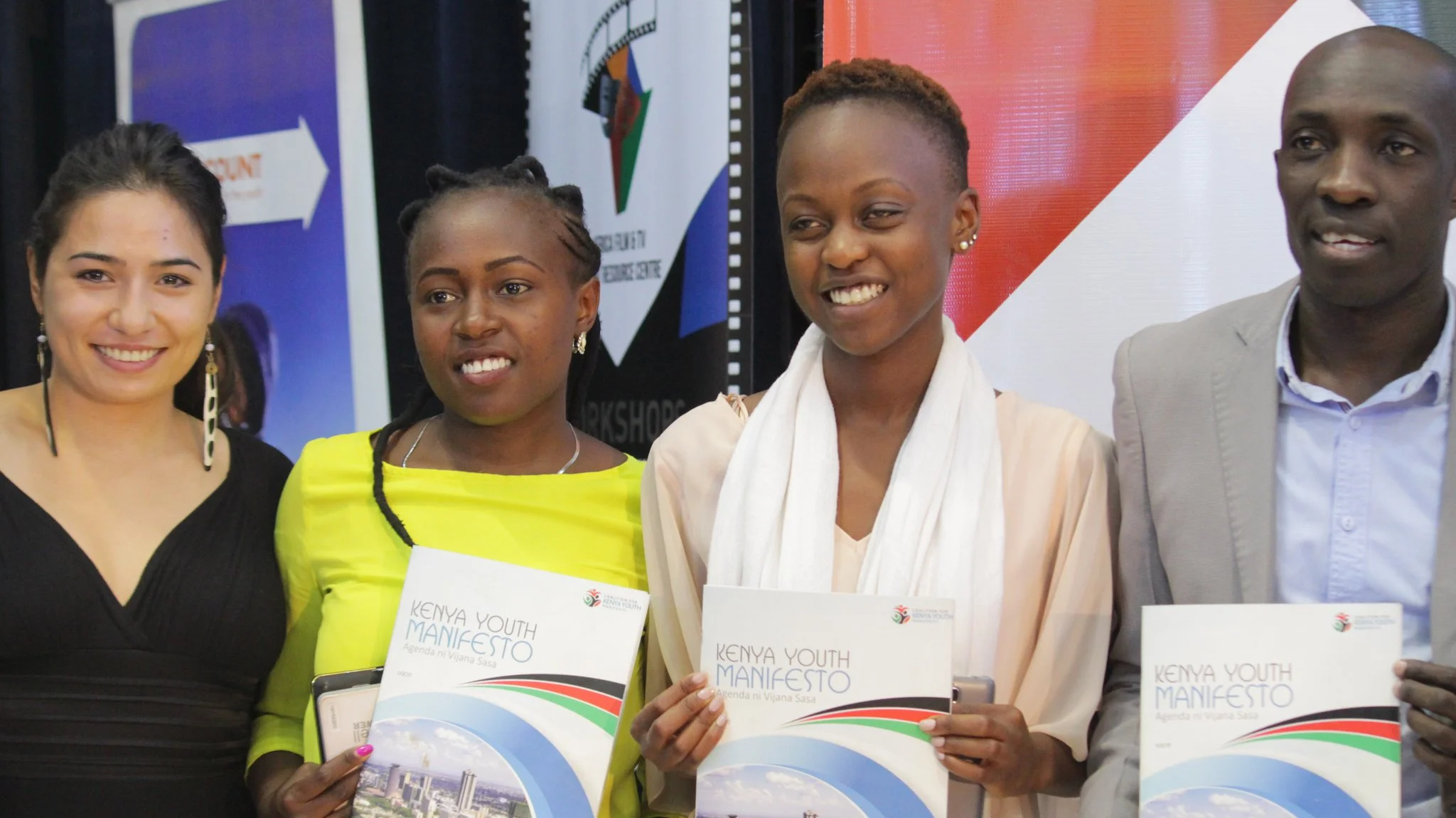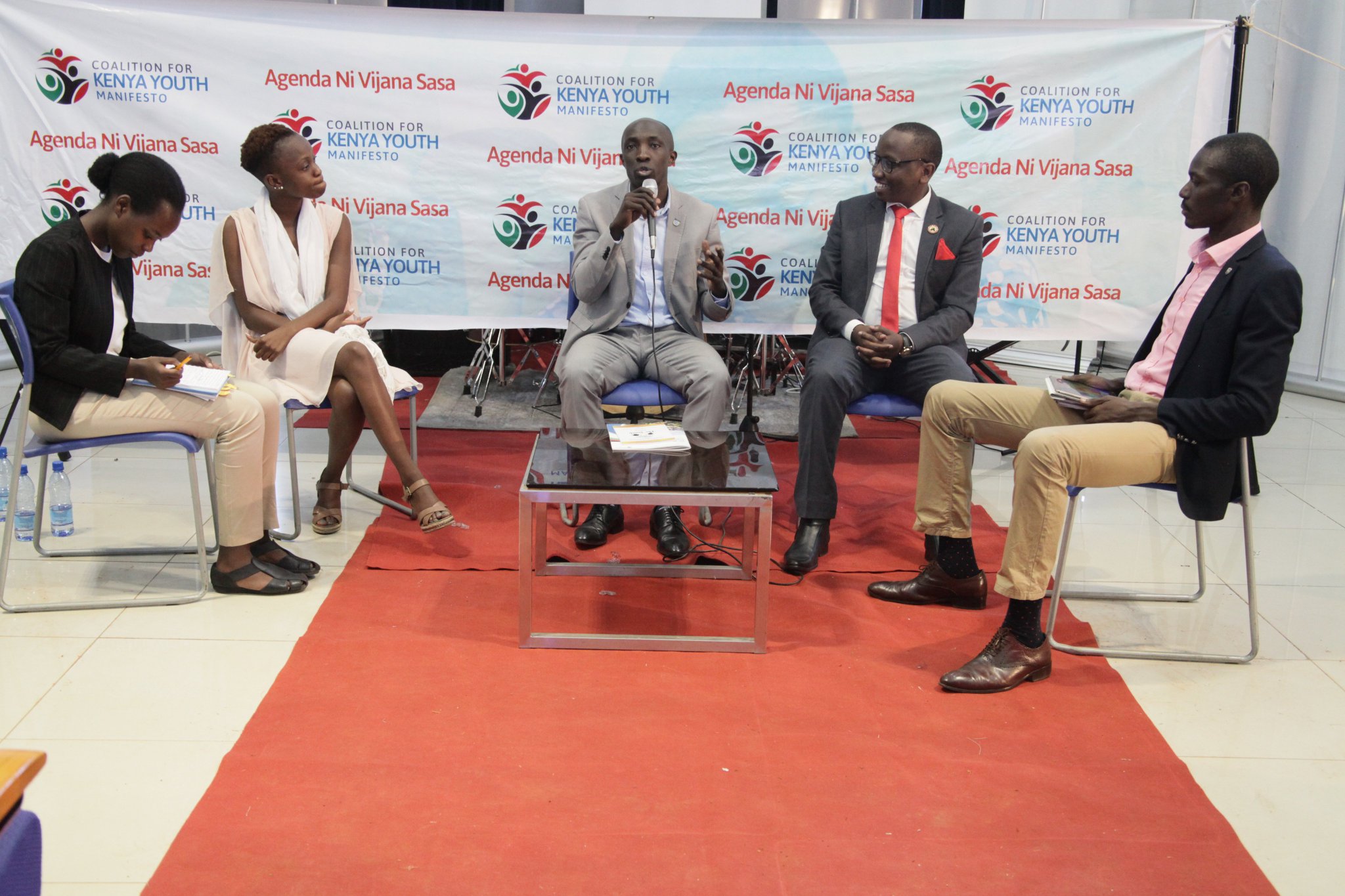“The Youth Manifesto is great. It is the product of an elaborate deliberative process involving young people between the ages of 18 and 35 (a cohort that represents 57 percent of the electorate). In his foreword, Willice Onyango depicts youth as a distinct but heterogeneous population group. He sounds like Amartya Sen when he calls for building the capabilities and expanding choices of young people by enhancing their access to and participation in all dimensions of the society.”
The Journey Toward The Youth Manifesto
The Youth Café led the efforts to author the first Youth Manifesto.
Building on national constitutions, Regional Economic Communities, National Youth Policies, Youth Charters, and The United Nations World Program on Youth and voices of thousands of young, Organizing Committee of the Coalition for Youth Manifesto of over 62 youth organizations and networks, unveiled a foundational document to frame the youth development agenda.
Through a series of consultations with youth groups across the country, alongside expert-led and youth-moderated Twitter chat sessions and short mobile-based messages, the project secretariat canvassed the views of the youth for the Manifesto. The audiences for the consultations represented the full diversity of youth. The objective of The Youth Café with this is to uphold the values of a democratic state in order to provide a platform worthy of forming part of the central political agenda.
The document is non-partisan.
The launch of the publication took place at Zetech University, in Nairobi. The event brought over 1,500 young people, youth leaders, and invited guests. And raised over 300,000$ to implement over two years.
So far, the manifesto has been presented to presidential candidates, major political parties, investors, donors, local governments, groups in the private-sector, and other development partners. The publication has been presented as a civic Innovation in Participatory Democracy internationally and has been reviewed by Peter Levine, Associate Dean for Research and Lincoln Filene Professor of Citizenship and Public Life in Tufts University's Jonathan Tisch College of Civic Life.
Thanks to the document, we have seen an open interaction that has fed into the general democratic scene and stimulated proposals for transformative solutions to some of youth’s most pressing issues. Some of the manifestos provisions, like a call for free universal secondary schooling and the increased allocations of funds for youth enterprises, have been adopted by the United Nations agencies, the private sector, governments, and high level political leaders.
Further reference


